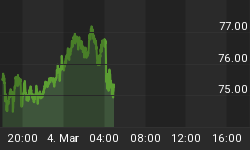Bernie Schaeffer is Holding the Fed Culpable for mistakes the Fed made on both ends.
Were all these rate hikes necessary? Forget even about current credit-market conditions that are now screaming for a rate cut. The yield curve had inverted long before the current crisis, and an inverted yield curve (where benchmark short-term rates exceed benchmark long-term rates) has traditionally been a precursor to a recession and a clear indication that Fed policy is too tight.
So it can be argued that the Fed played "bait and switch" with the nation's homeowners, moving from an unnecessarily loose to an unnecessarily tight monetary policy even as the mortgage debt was being piled higher and higher. And now per the above piece, almost a trillion dollars in ARMs will become significantly more expensive over the next two years.
Ben Bernanke bought the bogus deflation scare in 2001 - hook, line and sinker. And now - when deflation is actually a threat through house-price implosion and ARM resets - he worries about inflation. If he proves to be equally wrong about the economic backdrop this time, the consequences will be disastrous.
A 50 basis-point rate cut is needed, preferably before the next Fed meeting on September 18th. It is needed not for the purpose of bailing out profligacy on Main Street and on Wall Street, but to correct the consequences of the Federal Reserve's excessive rate hikes. And I can come as close to guaranteeing as I possibly can when speaking of the markets that if September 18th comes and goes with no such cut, the markets will not long thereafter force it out of the cold, dead hands of the current Fed Chairman.
In a sense yes, those rates hikes were necessary, if for no other reason than to shut the door on speculative lending. The credit boom party lasted far longer than I thought and it ended with a bang mid-summer just as the housing market ended with a bang mid-summer two years prior.
For two years in between, speculation went from housing to mergers, to debt funded share buybacks, to LBOs to the top being formed with Chuck Prince, Citigroup CEO proclaiming "No End Soon to Buyout Boom" We're Still Dancing. Now Citigroup (C), JPMorgan Chase (JPM), Lehman (LEH), and Bear Stearns (BSC) are all stuck with LBO commitments that the debt markets are now unwilling to fund.
As long as fools were dancing, the Fed was simply going to have a hard time cutting, no matter what housing was doing. And as Schaeffer points out, the irony of Bernanke's worries is remarkable. There is a clear danger of a deflationary credit crunch now, with Bernanke worried (or supposedly worried about inflation), but where was Bernanke when interest rates were 1%?
The entire world is now chocking on massive amounts of speculative debt, and central bankers are in a panic over what to do about it (see Panic Speaks Louder Than Words) and Still More Ideas To Fix Housing. It's certainly a different sort of dance now. Let's call it the Bernanke Shuffle.
And while a 50-basis point cut may be needed, the idea that it will "correct the consequences of the Federal Reserve's excessive rate hikes" is simply mistaken. The only way to correct the consequences of the Fed's actions would be to have not built a housing/credit bubble in the first place.
No Way to Undo Damage
- There is no way to "unbuild" all the homes that were built and not needed.
- There is no way to undo liar loans to buy those homes.
- There is no way to undo condo towers that are half built monuments to stupidity.
- There is no way to undo excesses with leveraged buyouts.
- There is no way to undo massive speculative junk bond offerings.
- There is no way to undo the damage this is going to cause to pension plans, life insurance plans, etc..
So while Schaeffer is correct with his assertion that the Fed made mistakes on both ends, and also correct with his statement "If September 18th comes and goes with no such cut, the markets will not long thereafter force it out of the cold, dead hands of the current Fed Chairman", there is nothing that can be done to "correct the consequences" of the Fed overshooting in both directions.
It is far too late to undo the Fed's damage no matter how many dance lessons Bernanke takes.















